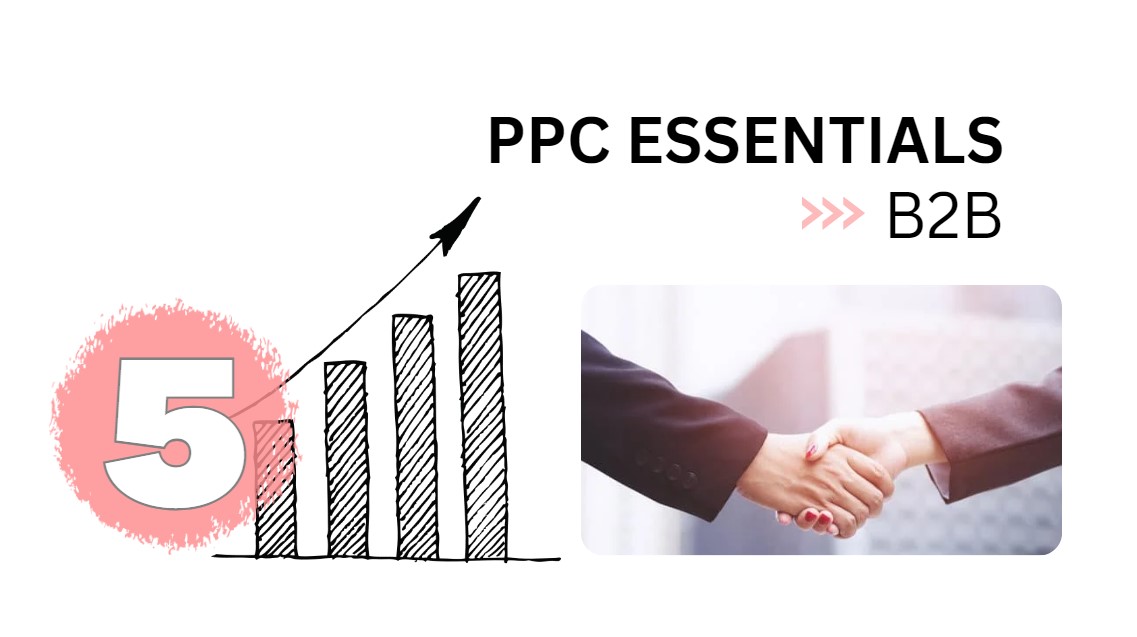Pay-per-click (PPC) advertising allows companies to display their ads in search engine results, social media platforms, and other online channels. However, creating a successful B2B PPC campaign requires more than just setting up ads and targeting the right keywords.
Here are five essential ingredients of your PPC campaign recipes.
Clear Goals and KPIs
Before launching a PPC campaign, it is essential to define clear goals and key performance indicators (KPIs). These goals could be anything from generating leads to increasing website traffic or boosting brand awareness. KPIs, on the other hand, are measurable metrics that help determine the success of your campaign. Examples of KPIs include cost per click (CPC), click-through rate (CTR), conversion rate, and cost per conversion.
For instance, if your goal is to generate leads, you could set up a KPI of a cost per lead (CPL) to measure the effectiveness of your campaign. This will help you understand how much it costs to acquire a new lead and whether your campaign is profitable.
Relevant Keywords and Ad Copy
The next essential element of a successful B2B PPC campaign is relevant keywords and ad copy. Researching and selecting the right keywords for your campaign is crucial. It ensures that your ads are displayed to the right audience and generate clicks that are more likely to convert into leads.
For example, if you are a B2B software company that sells project management software, your keywords could include “project management software,” “online project management tools,” “project management system,” and so on. Using these keywords in your ad copy can help improve the relevance of your ads and increase your CTR.
Landing Page Optimization
Once a user clicks on your ad, they are directed to a landing page. This is where they will find more information about your product or service and take the desired action, such as filling out a form or making a purchase. Landing page optimization is crucial to the success of your B2B PPC campaign. A well-designed landing page can improve your conversion rates and increase the ROI of your campaign.
For example, a B2B software company that sells project management software should create a landing page that highlights the benefits of their product, such as improved productivity, streamlined workflows, and better collaboration. The landing page should also have a clear call-to-action (CTA) that encourages users to sign up for a free trial or schedule a demo.
Targeted Audience
Targeting the right audience is another critical element of a successful B2B PPC campaign. It ensures that your ads are displayed to the people who are most likely to be interested in your product or service. Some of the factors that you can use to target your audience include location, demographics, interests, and behavior.
For instance, if you are a B2B marketing agency that offers services to small businesses, you can target your ads to business owners in specific geographic locations, such as your city or state. You can also use interests and behaviors to target users who are interested in marketing and advertising.
Continuous Optimization and Monitoring
The final essential element of a successful B2B PPC campaign is continuous optimization and monitoring. PPC advertising is an ongoing process that requires constant monitoring and optimization to ensure that your campaign is performing well. Regularly reviewing your campaign’s performance and making adjustments to your ad copy, landing pages, and targeting can help you achieve better results and improve your ROI.
For example, you can use A/B testing to test different ad copy and landing page designs to see which ones perform better. You can also monitor your campaign’s performance using tools such as Google
Boost Awareness, Visits, and Leads
By implementing these five essential elements, you can create a successful B2B PPC campaign that generates leads, increases website traffic, and boosts brand awareness.

